by
But for the children of these composers, their names – and the growing legacies that became associated with them – could become overwhelming to be associated with.
Today, we’re looking at the stories of six composer children who, at one point or another, found themselves overshadowed by their famous composer parents.
Carl Philipp Emanuel Bach (1714–1788)
Son of: Johann Sebastian Bach
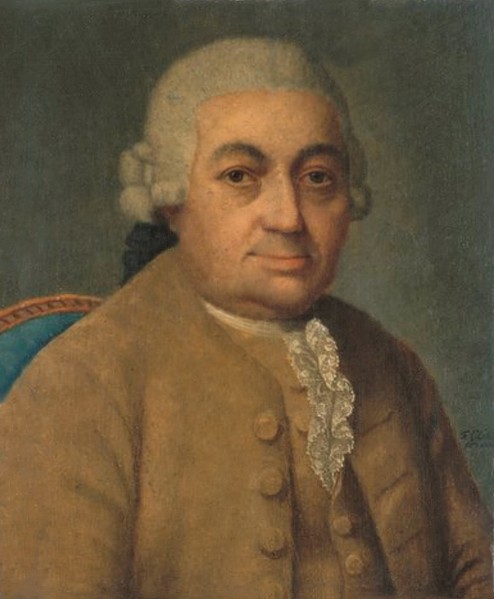
Carl Philipp Emanuel Bach
Over the course of his life, composer Johann Sebastian Bach had twenty children. He outlived all but nine. Of those nine, four were sons who became professional composers.
In the eyes of history, none of them measured up to their father.
Of the Bach children, the most successful was Carl Philipp Emanuel Bach, often remembered as C.P.E. Bach today.
His father has emerged as a pillar of the Baroque era. In contrast, C.P.E. Bach became a bridge between the Baroque era and the Classical and Romantic eras.
He is especially well-known for his contributions to the Empfindsamer Stil, or “sensitive style.” This style of music emphasised expressing “true and natural” emotions, rather than adhering to the carefully contrived structures celebrated in his father’s generation.
Franz Xaver Wolfgang Mozart (1791–1844)
Son of: Wolfgang Amadeus Mozart
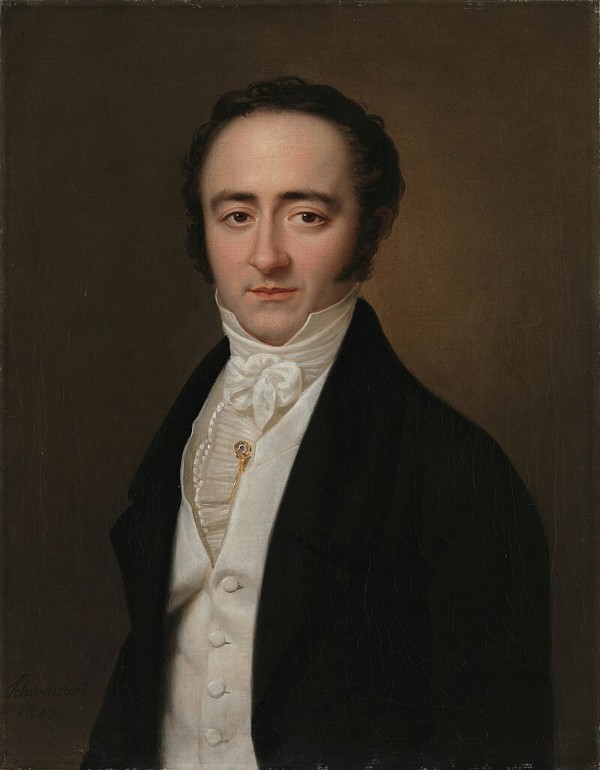
Franz Xaver Wolfgang Mozart
Franz Xaver Mozart was just four months old when his father, Wolfgang Amadeus Mozart, died at 35.
When he died, Franz Xaver’s mother, Constanze, became an impoverished widow. She understood two things well: her economic vulnerability as a young single mother in 1790s Vienna, and the value of her husband’s genius.
She marketed her son as “W.A. Mozart Jr.,” hoping to continue the mythology of her husband.
Franz turned into a capable pianist and a refined composer, but his music never reached the heights of his father’s. (Few composers did!)
When he died in 1844, his tombstone was inscribed with “May his father’s name be his epitaph, as his veneration for him was the essence of his life.”
Siegfried Wagner (1869–1930)
Son of: Richard Wagner
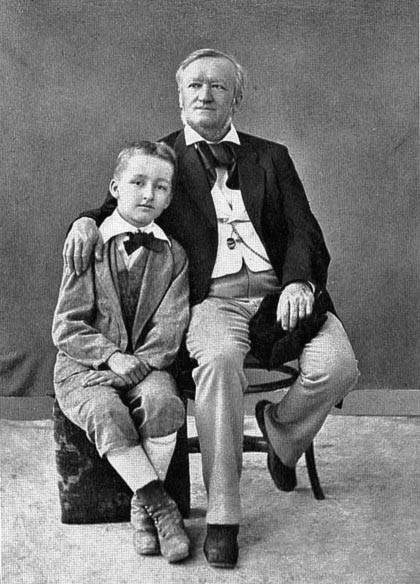
Richard and Siegfried Wagner
The only son of Richard Wagner and Cosima Liszt (herself the daughter of Franz Liszt), Siegfried Wagner was born into a multigenerational musical dynasty.
Born in 1869, he began composing around 1882, but didn’t commit to music until a decade later.
In 1908, he officially succeeded his strong-willed mother, Cosima, as head of the Bayreuth Festival, but her influence weighed heavily on him until she died in 1930…which happened just a few months before his own.
Over the course of his career, he wrote around a dozen operas in a style similar to his father’s, but they never achieved a permanent foothold in the repertoire.
When it came to continuing the Wagnerian dynasty, Siegfried felt both personal and societal pressure. He was a queer man and had important romantic relationships with men throughout his life, but his mother wanted him to marry to continue the dynasty.
At 45, he finally succumbed to her wishes and got married…to an 18-year-old, with whom he had four children in quick succession. The Wagner name would continue.
Felix Schumann (1854–1879)
Son of: Robert and Clara Schumann
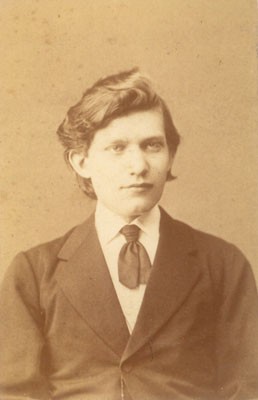
Felix Schumann
The love story of Robert and Clara Schumann is famous in classical music history: two seemingly star-crossed lovers who had to take Clara’s controlling father to court in order to be together.
But the drama of their love story didn’t end with their marriage in 1840.
They had eight children together. Read more about “what happened to Robert and Clara Schumann’s children?”
The youngest, Felix, was born in 1854, after his father, Robert, had suffered a suicide attempt and moved to a mental hospital. Robert would die just a few years later.
Felix grew into a gifted poet with a measure of musical talent, but he was also constantly compared to Robert.
As if that wasn’t enough pressure, his perfectionist mother, Clara – one of the greatest pianists of her generation, male or female – constantly fretted over all her children. She asked him if he ever published his poetry, to do so under a pseudonym, so if the work failed, it wouldn’t bring shame on his father’s name.
His surrogate father figure, Johannes Brahms was impressed enough by Felix’s poetry that he set some of it to music.
Felix came down with tuberculosis during his adolescence. After great suffering, he died in 1879 at the age of twenty-four, leaving open the question of whether his work could ever have competed with his parents’.
Imogen Holst (1907–1984)
Daughter of: Gustav Holst
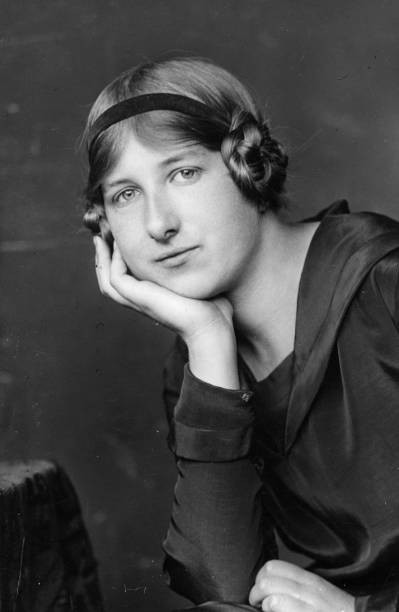
Imogen Holst
Imogen Holst was a gifted composer, conductor, and musicologist. However, much of her career was spent preserving and amplifying her father’s legacy.
She also became an invaluable assistant and creative partner to Benjamin Britten, with whom she worked closely at Aldeburgh.
The work she did on behalf of her father and Britten was incredibly important, but it also often overshadowed her own considerable accomplishments.
During her lifetime, her works, which include chamber music, choral pieces, and educational writing, were often overlooked.
As the priorities of audiences and presenters evolve and the works of women composers are re-examined, perhaps her works will be performed more often and contribute to her own legacy instead of just her father’s.
Soulima Stravinsky (1910–1994)
Son of: Igor Stravinsky
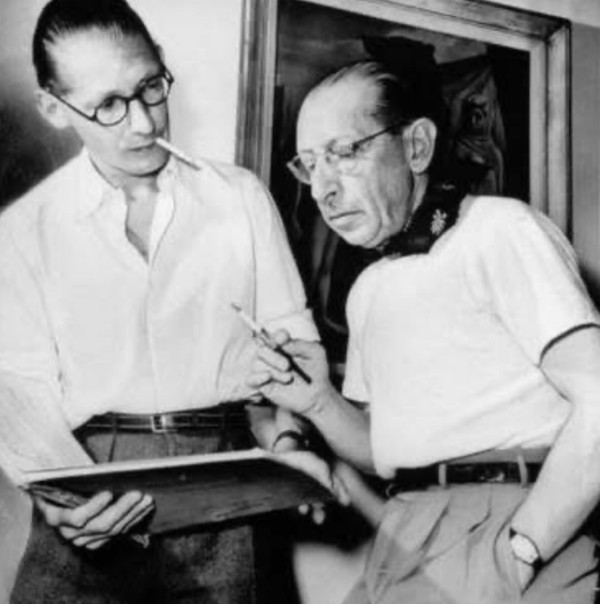
Soulima and Igor Stravinsky
Soulima Stravinsky’s father, Igor, redefined twentieth-century music with The Rite of Spring when Soulima was just a toddler.
He studied piano with Isidor Philipp (who taught Aaron Copland) and Nadia Boulanger (who taught almost every important twentieth-century composer), and appeared in Paris in 1934, performing piano and orchestra works by his father. (He would record them with him in 1938.)
During World War II, Soulima joined the French army. After the war was over, in 1948, he joined his father in America and restarted his musical career there.
He taught at the School of Music of the University of Illinois between 1950 and 1978.
He wrote a number of pieces, but he is known professionally for his pedagogical works. Of course, generally speaking, he’s best remembarence.
No comments:
Post a Comment